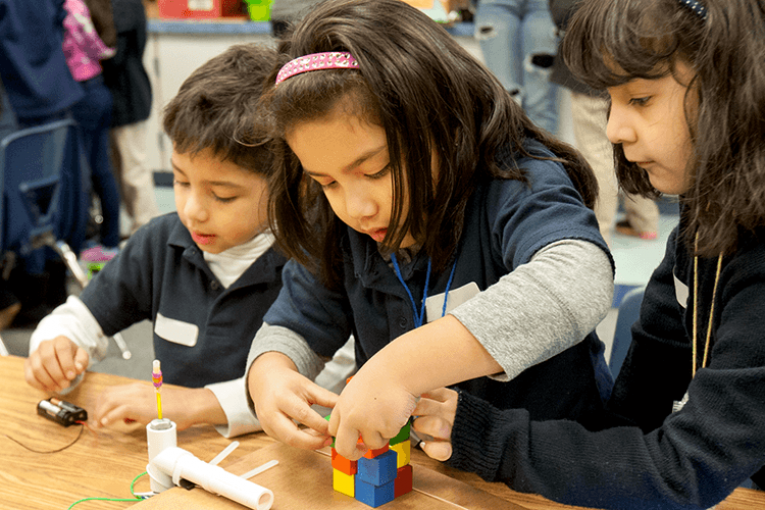

As it turns out in the last 4000 or so ballots counted, Measure G did get a surge, going to 69.2 percent, but that still left the ballot measure at 66.3 percent or about 155 votes shy of the two-thirds mark.
The measure is remarkably close to passing now—especially considering where it was after the first ballots were counted and even after Election Day. Basically, 33.67 percent of the voters are now preventing the district from being able to fund teacher compensation increases.
That are some ballots still to be counted—vote-by-mails (VBMs) from other counties, provisional ballots, conditional voter registration, and others that have been suppressed. With this election and the Fifth Supervisorial election as close as they are, those 8000 ballots across the county could loom large.
Things are now close enough to bring up this story where we were told there were a number of students who had to access provisional ballots and one person told me that as many as 100 to 200 of them came at the very end and they think most if not all would favor Measure G. That sounds like a Hail Mary pass at this point, but it is close enough that such a cluster of votes could actually swing the Measure G election.
Given how close they came and the stakes, under ordinary conditions, I would say, put the matter back on the ballot for November. Obviously right now is far from normal. They do have until the end of June or July to make that call. They could always opt for their standard special election which is VBM only.
My early thought is that a second go at it would be helpful, as they would be able to counter some of the completely false claims by the opposition—including giving a better explanation of why average teacher salaries are not the best measure for compensation fairness.
Bob Dunning’s column makes a few key points stating, “I was honestly stunned that Measure G, the school parcel tax measure designed to help pay our public schoolteachers what they’re worth, has so far not reached the two-thirds approval necessary for passage …”
He also argues: “I don’t like the two-thirds requirement more than the next guy … and I don’t care if we’re talking about a parcel tax or the speed limit … why should one-third of the electorate  (plus one) be able to control the other two-thirds (minus one)? …”
(plus one) be able to control the other two-thirds (minus one)? …”
I completely agree. I’ll repeat it, 33.67 percent of the voters are blocking this. If I said a politician had 33.67 percent approval rating, you would think they are in trouble.
Finally, Mr. Dunning presents the idea of “voluntarily” donating the money “to pay our teachers a living wage.”
First of all, it would have to be much more than $198 per year. The donors would have to make up for the vast majority who are not going to donate the money. There is a reason we require taxation. Voluntary taxation, even for something the majority support, falls into the problem of game theory concerns about free riders.
Second, the Davis School Foundation back in 2008 raised enough to bridge a few positions for a year but they would have probably raise ten times more than their record to fund this kind of increase. We are talking about $3 million.
Third, they would not only have to set the record one year when perhaps motivation is high after a disappointing loss—notwithstanding the impact of coronavirus—but they would have to do this every year.
Finally, the district would probably not even be willing to use such one-time money to fund an ongoing need. Even if they did miraculously raise $3 million one year, they couldn’t rely on it to put it into a contract for future years. At best, it could be a year by year bonus for teachers.
That said, UC Davis raised $230 million in 2017-18. Wealthy school districts have billion dollar endowments for their foundations. So it is possible, but most people I spoke to have cited the lack of deep wealth in this community as a complicating factor.
The bottom line—the district should try it again. Maybe not in November, but in 2021 once the world recovers from the coronavirus scare.
—David M. Greenwald reporting


Article misses an open question…
“Are voluntary donations to DJUSD tax-deductible?”
Not as an alternative to taxes, for all the valid reasons the article cites, but as an option…
As it stands, with SALT, we are more than maxed out… but if we took our exemptions, and used the same $$$ as a charitable contribution, we could at least see a benefit… or, we can just exercise our exemptions… so far, just “crickets”, to the question I have asked multiple times…
One course would mean a decrease in DJUSD revenues… the other would be revenue-neutral to DJUSD, but would save us some $$.
But if no one cares to answer the question, why should we care? We’ll just take our exemptions…
BTW I have not only asked the question on the VG, but also in an e-mail to each of the Board Members (months ago)… “crickets” across the board (literally and figuratively)
So true. If only we were Yolo, Zamora, Dunnigan, Orland or Balls Ferry.
Oh… and the canvass is not complete… yet, speculation…
Reminds me of another thread(s)… like the ‘virus de jour’…
Let’s do a “reset” and take Bob Dumming’s notion in another direction. We don’t have to go too far to find a recent precedent that generated untold large sums of money for another heart-felt worthy cause. Natalie Corona.
Suppose a service club, a PTA group, or equivalent, was to announce a perpetual fund-raising effort to give sustained financial support to our underpaid teachers. Similar to the annual scholarships to high school students seeking academic training in criminal justice careers, this funding effort would supplement teachers’ compensation needs.
The promotional opportunities are many, ranking annual donations or pledges, then publishing names of supporters, as public television does. Make a monthly mortgage payment to a Davis teacher ($??), Give a month’s worth of groceries to a teacher ($100), treat a teacher to dinner out, ($ 30). Hold public fundraisers with dinner and use donated door prizes for raffles or silent auctions.
Everyone says they love our local teachers, it’s that hypocritical one-third of our local population who speak differently behind the curtain of the voting booth. To hell with them, they will never change their attitude or their vote, the rest of us can stand up and say, “We’ll do it.”
There’s a reasonable chance you could raise enough money for one year (although it would be about ten times how much they raise normallY). Granted what they raised for Natalie Corona would not have been nearly enough either. Trying to do it on an ongoing basis is really problematic.